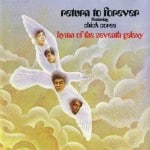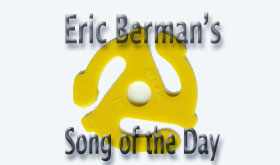
 Pianist extraordinaire, Chick Corea, got his professional start playing with the likes of Cab Calloway, Blue Mitchell, Herbie Mann, Willie Bobo and Mongo Santamaria. He went on to replace Herbie Hancock in Miles Davis’ band, and played with him from 1968 through 1971 during a crucial time when Miles was moving away from straight-ahead jazz, and toward a more psychedelic rock sound. He appeared on Davis’ seminal albums Filles de Kilimanjaro, In A Silent Way, Bitches Brew, Black Beauty and Miles Davis At Fillmore.
Pianist extraordinaire, Chick Corea, got his professional start playing with the likes of Cab Calloway, Blue Mitchell, Herbie Mann, Willie Bobo and Mongo Santamaria. He went on to replace Herbie Hancock in Miles Davis’ band, and played with him from 1968 through 1971 during a crucial time when Miles was moving away from straight-ahead jazz, and toward a more psychedelic rock sound. He appeared on Davis’ seminal albums Filles de Kilimanjaro, In A Silent Way, Bitches Brew, Black Beauty and Miles Davis At Fillmore.
After leaving Miles’ ranks with Dave Holland, he formed the group Circle with Anthony Braxton and Barry Altschul before forming Return To Forever in 1971. The first two Return To Forever albums featured husband and wife Flora Purim on vocals and Airto Moreira on percussion, plus Joe Farrell on flute and soprano sax and Stanley Clark on bass. This group released their self-titled debut album, and 1973’s Light As A Feather. Both albums had a Latin-tinged ethereal sound, highlighted by Purim’s distant vocal style.
For Chick Corea’s second album of 1973, Hymn Of The Seventh Galaxy, Flora Purim, Airto Moreira and Joe Farrell were out, and Lenny White (drums) and Bill Connors (guitar) joined Corea (synthesizer, piano) and Stanley Clarke (bass) for an all-instrumental collection that pushed the boundaries of jazz by adding more rock instrumentation to the mix.
The album was recorded twice. The first version featured Steve Gadd on drums who didn’t want to tour with the group, so the complete album was cut again with Lenny White on drums. The unreleased tapes of the Gadd version have been lost to the ages.
Hymn refined Miles Davis’ blueprint for jazz rock by moving it more into the mainstream with electric instrumentation and the sounds of funk, psychedelia, Latin jazz and instrumental prog rock, highlighted by the interplay between Corea and guitarist Bill Connors.
Today’s Song Of the Day is the album’s title track which has become a cornerstone of Corea’s repertoire. The album also features Corea’s “Captain Señor Mouse,” “The Game Maker,” “Theme To The Mothership” and Stanley Clarke’s “After The Cosmic Rain.”
After this album, Al DiMeola would replace Bill Connors and Return To Forever would release best-selling records throughout the 1970s like Where Have I Known You Before, No Mystery, Romantic Warrior and Musicmagic.







